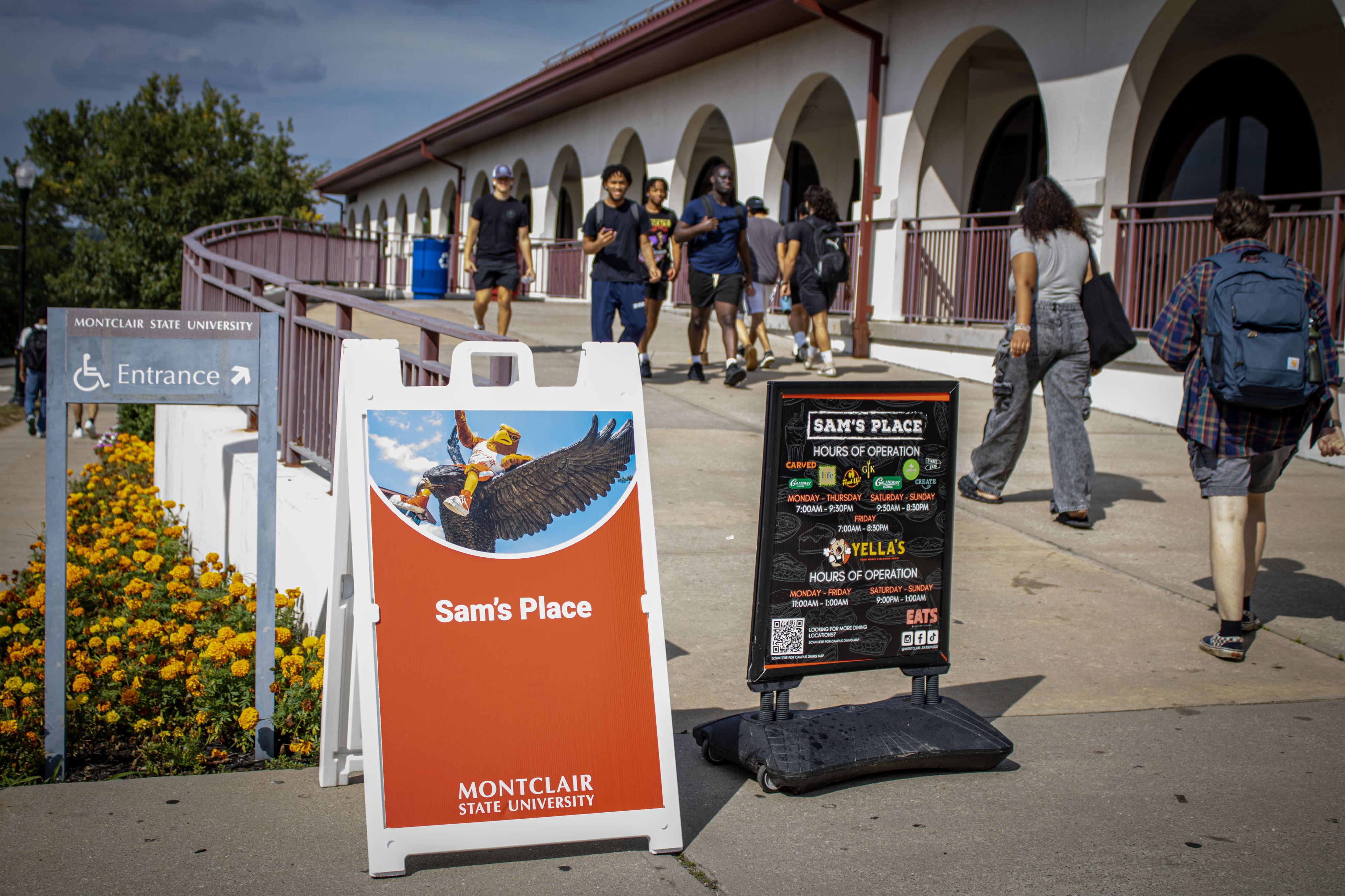The fall semester has begun and Montclair State University students stepped onto campus to see a bunch of new changes in dining. Some of these changes include renovations to the dining halls, new dining options and a brand new dining partner, Eats by Gourmet Dining Services.
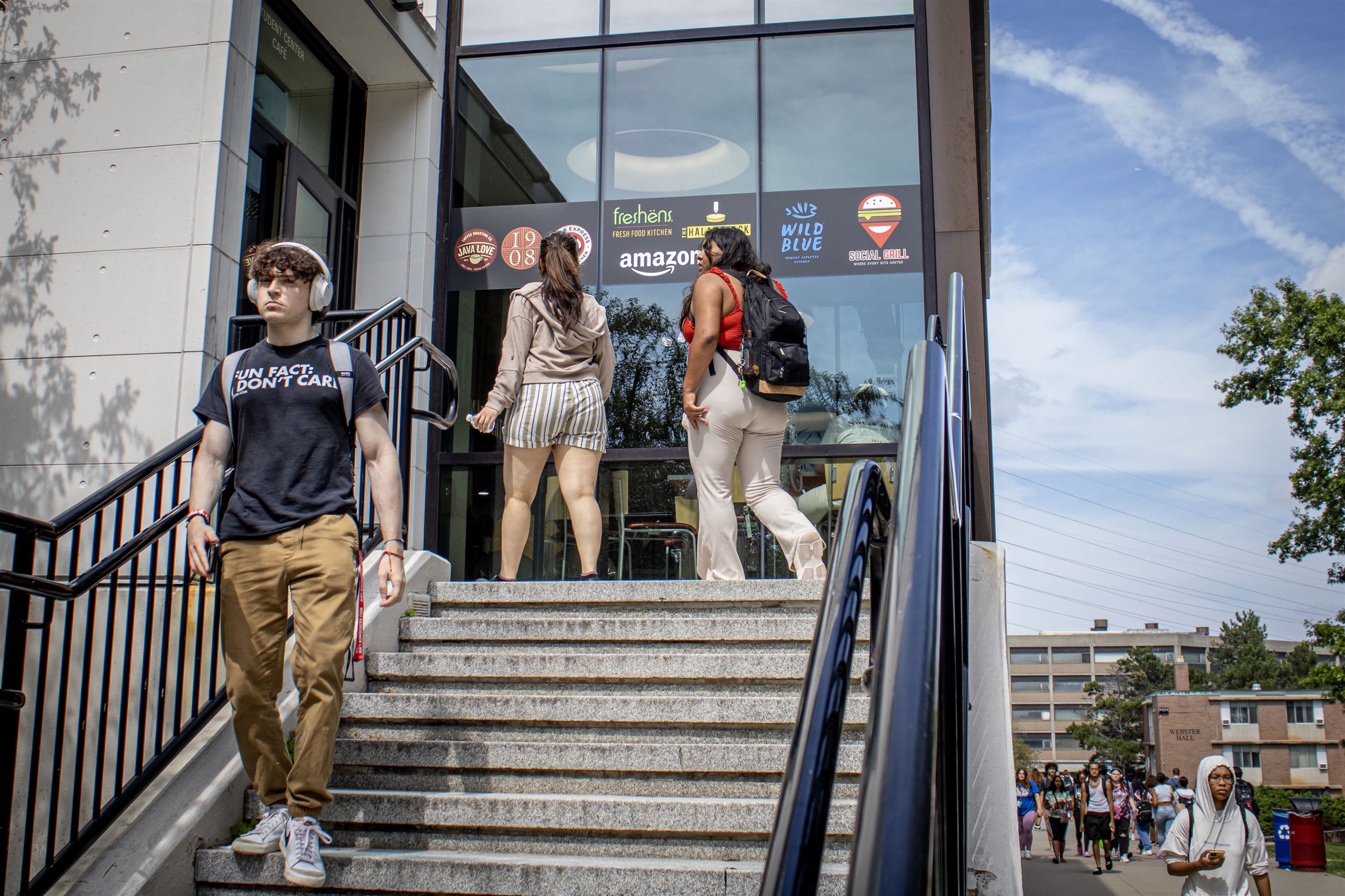
People walking in and out of the student center cafeteria at Montclair State University. Dani Mazariegos | The Montclarion
One of the most recognizable changes is the new meal plan catered to commuter students. The mandatory $250 Flex Bonus plan was issued to commuters on their student bill this semester.
The meal plan, titled the Commuter Deposit Program, was explained in depth by Media Relations Director Andrew Mees.
“Commuter students pay $250 and receive $300 Flex Dollars per semester ($250 Flex Dining Deposit plus $50 on the University),” Mees said. “Flex dollars can be spent at all dining, convenience stores and vending locations on campus. Unspent flex dollars will roll over from fall to spring semester and will be refundable at the end of the academic year (for the Commuter Dining Deposit plan only).”
The dining plan is offered to full-time undergraduate commuter students taking at least 12 credits.
“All full-time (12 or more credit hours/semester) undergraduate commuters taking at least one course on campus will participate in the Commuter Dining Deposit unless a higher level meal plan is selected,” Mees said.
While some commuters see the meal plan program as an advantage, others see it as something that should have been optional.
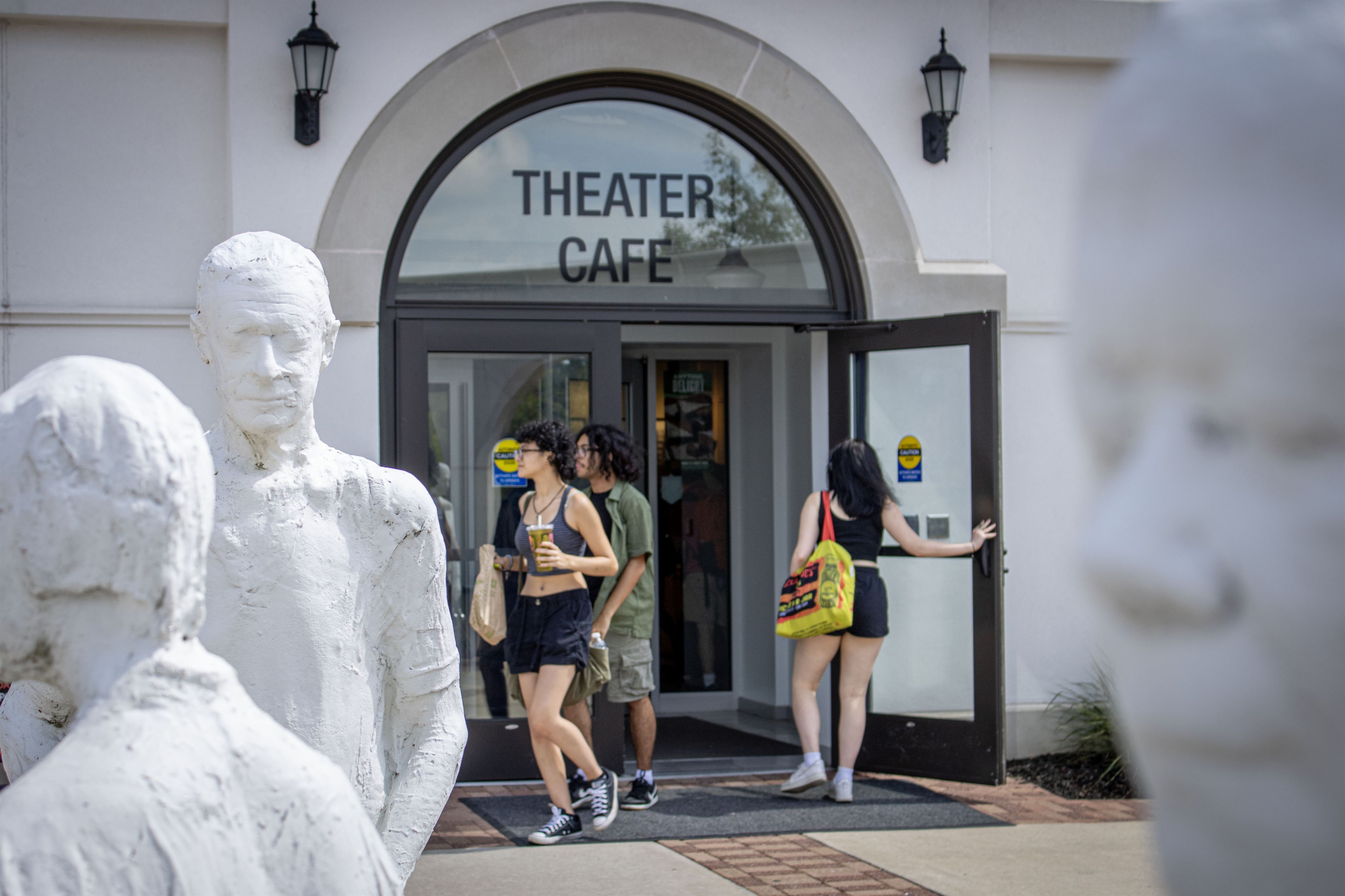
People entering and leaving the theater cafe. Dani Mazariegos | The Montclarion
Aaron Katalbas, a junior exercise science major, was surprised at first but as a commuter who lives farther away from campus, he believes that the plan is beneficial.
“I was surprised that it was mandatory,” Katalbas said. “For me personally, I commute and I’m a good 30 minutes away. So I think personally for me and other people in my situation, we appreciated it a little more.”
Dawn Soufleris, Vice President of Student Development and Campus life, says that the Commuter Deposit Program can benefit commuter students by the connection and encouragement of eating on campus.
“As we continue to strive for a community of Red Hawks that feels connected and a strong sense of belonging, we believe the Commuter Dining Deposit will enhance the experience of our commuters by encouraging them to eat on campus,” said Soufleris. “We hope this plan brings our commuters to our dining areas, and builds for them a sense of connection even stronger than in the past.”
The meal plan can be a plus, but it does mean more money out-of-pocket for some commuters in low-income situations.
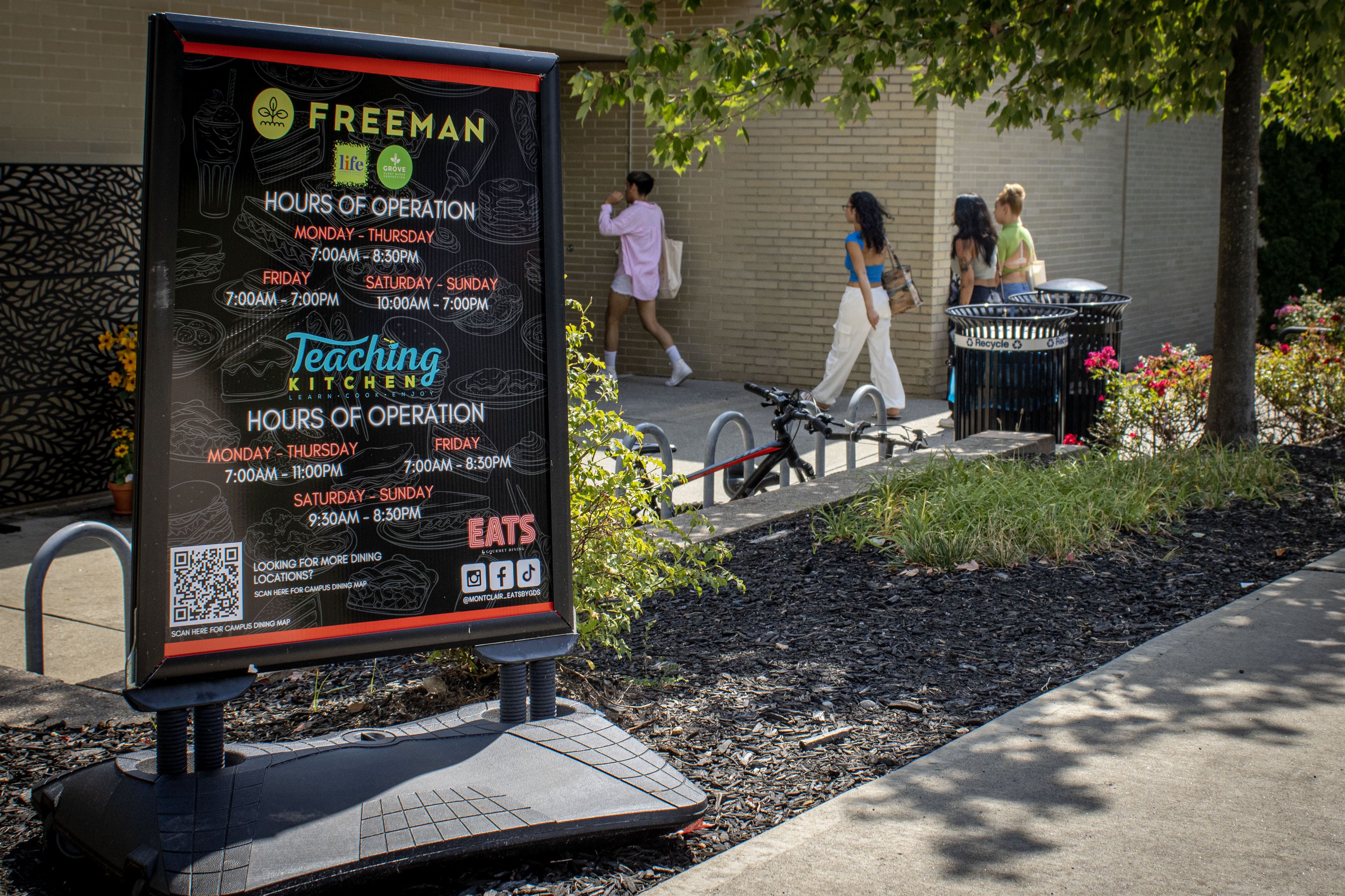
Students entering Freeman dining hall. Dani Mazariegos | The Montclarion
Katalbas believes that an optional plan would allow commuter students to choose whether or not a meal plan is best for them.
“I think it should be optional because for some people, that $250 could be like everything to them,” Katalbas said. “In terms of [commuters] in those financial situations, I feel like it shouldn’t be forced upon them.”
The dining plan will be mandatory due to the value to commuter students that comes with it.
“The intention is for this to become a permanent offering because of the value we know it will bring to commuter students,” Mees said.
Dana Lozada, a sophomore animation major, found it easier to purchase food using the deposit program due to their financial situation.
“[I honestly felt] pleasantly surprised,” Lozada said. “I was getting lunch paycheck to paycheck from work, so [the dining plan] made it easier.”
They believe the dining plan should continue to be included in the tuition bill if the price could be lower.
“I do think it should be really included in tuition,” Lozada said. “[But] it would be better if the prices dropped a little bit.”
Soufleris hopes that the meal plan helps to reduce the issue of food insecurity on campus.
“We also hope this will assist in reducing the issue of food insecurity for some of our students,” Soufleris said. “By having the convenience of flex bonus dollars on your ID, a student can use this allotment (especially with the extra $50 each semester the university is contributing) as a way of eating healthy and having the resources to eat while they are on our campus.”
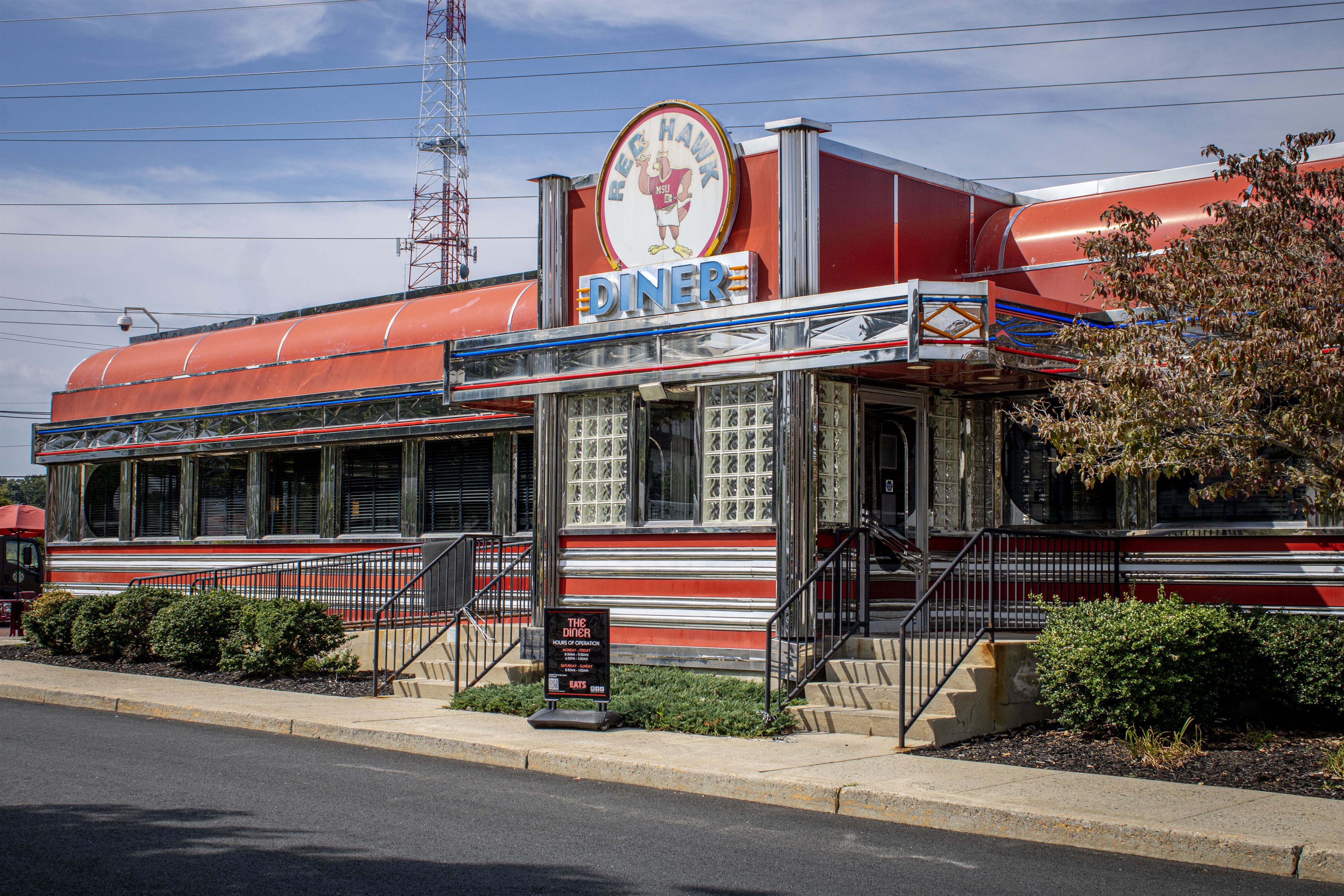
MONTCLAIR, NJ 09/05/23 MONTCLAIR STATE UNIVERSITY CAMPUS DINING: Photo of the Red Hawk diner at Montclair State University. - photo by Dani Mazariegos
Gaby Rodriguez, a sophomore animation major, found relief in the new plan as they no longer have to carry lunch with them to campus.
“It was more of a benefit for me more than anything because it’s kind of annoying having to bring my lunch [to campus] all the time,” Rodriguez said.
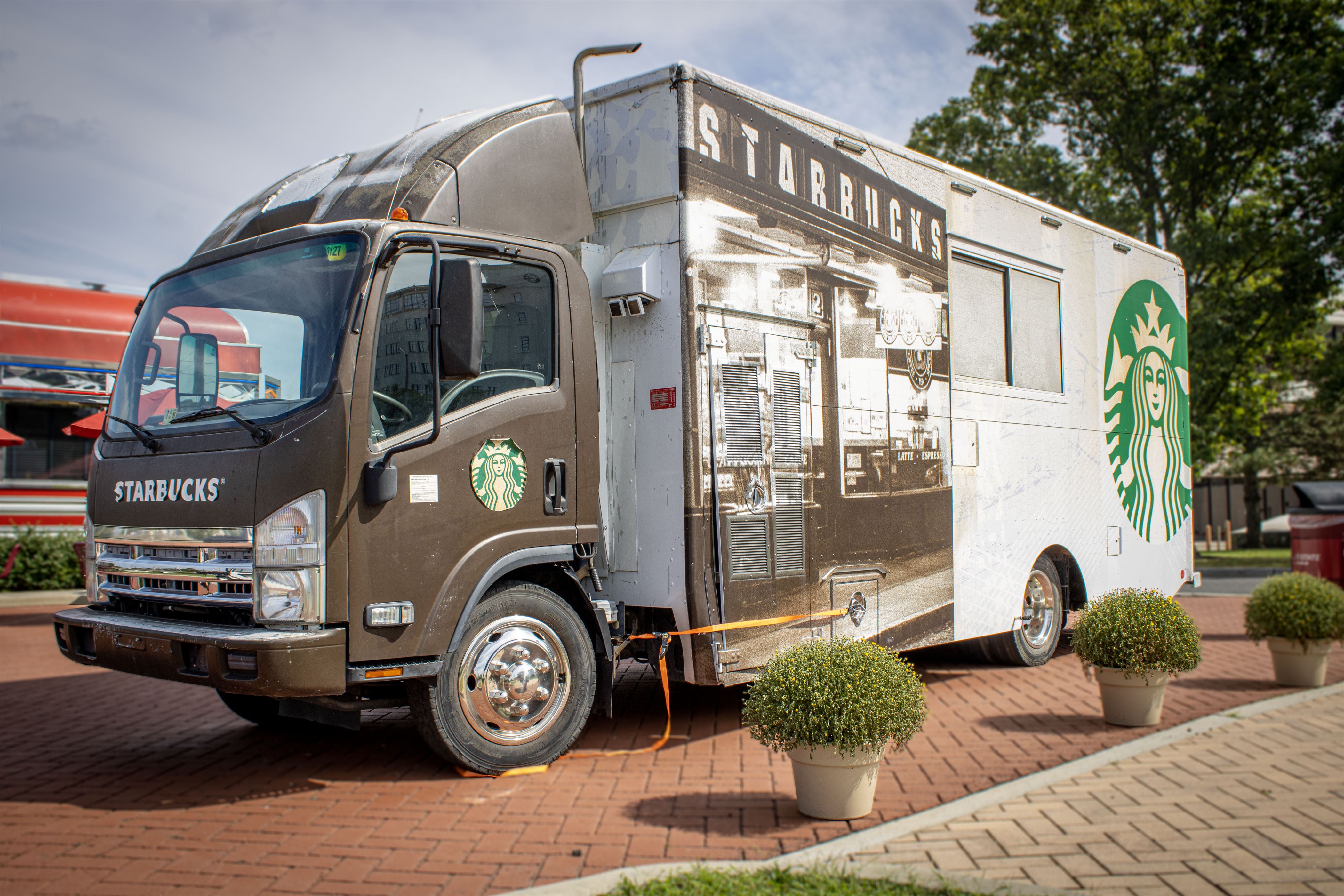
A Starbucks truck parked at Montclair State University. Dani Mazariegos | The Montclarion
The overall point of the Commuter Deposit Program is to bring commuter students together and indulge in on-campus dining.
“Food brings people together,” Soufleris said. “Sharing a meal, grabbing a coffee with a classmate, experiencing more cultural food on campus rather than just chicken fingers and fries, heading to a place for a fresh milkshake or meeting up with friends at the Red Hawk Diner late at night all in our view contribute to a positive campus experience and bring life to our community.”

